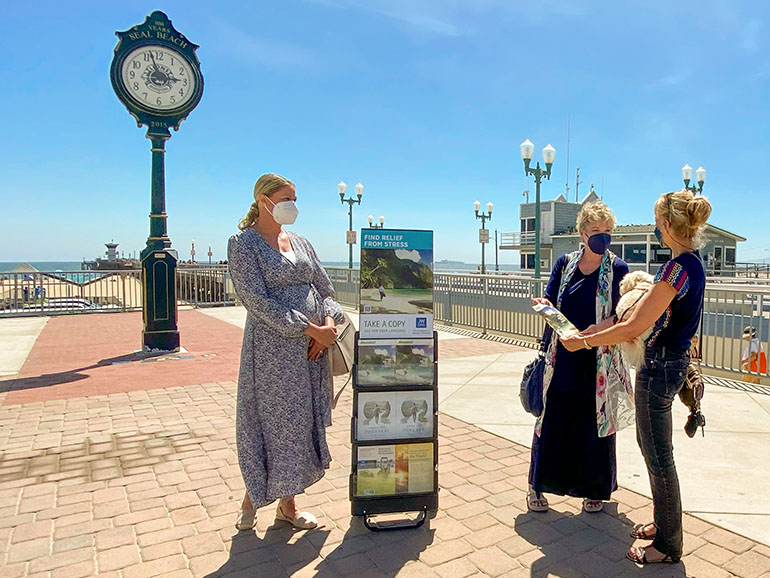
If you happen to be at the Seal Beach Pier, you may notice that a pre-pandemic fixture is back on the sidewalks: smiling faces standing next to colorful carts featuring a positive message and free Bible-based literature.
Thousands of these carts will be rolling down the streets of communities like Seal Beach across the world as Jehovah’s Witnesses recommence their global public preaching work some 24 months after putting it on pause due to the pandemic.
“We are excited and eager to return to our public ministry!” said David Cohen, local spokesman for California. “During the pandemic, more than 113,000 Jehovah’s Witnesses across the state continued to reach people through letters and phone calls, but there is nothing like seeing our neighbors in person.”
While the organization is not yet back to knocking on doors, local congregations have also resumed free in-person Bible studies along with personal visits to those who have invited them back to their homes.
“While we understand that the pandemic is not over, we are entering into a phase of learning to live with COVID-19,” said Robert Hendriks, U.S. spokesperson for Jehovah’s Witnesses. “We are sensitive to the risks that still face our communities and our volunteers, which is why we will not resume door-to-door ministry at this time.”
Mobile displays of Bible-based literature have been part of Jehovah’s Witnesses’ public ministry in the U.S. since 2011. While “cart witnessing” began in large metropolitan areas around the world, the practice quickly spread to the tens of thousands of smaller communities, becoming a fixture in rail and bus stations, airports, harbors and main streets.
To learn more about Jehovah’s Witnesses, their history, beliefs and activities, visit their official website, jw.org, featuring content in more than 1,000 languages.
